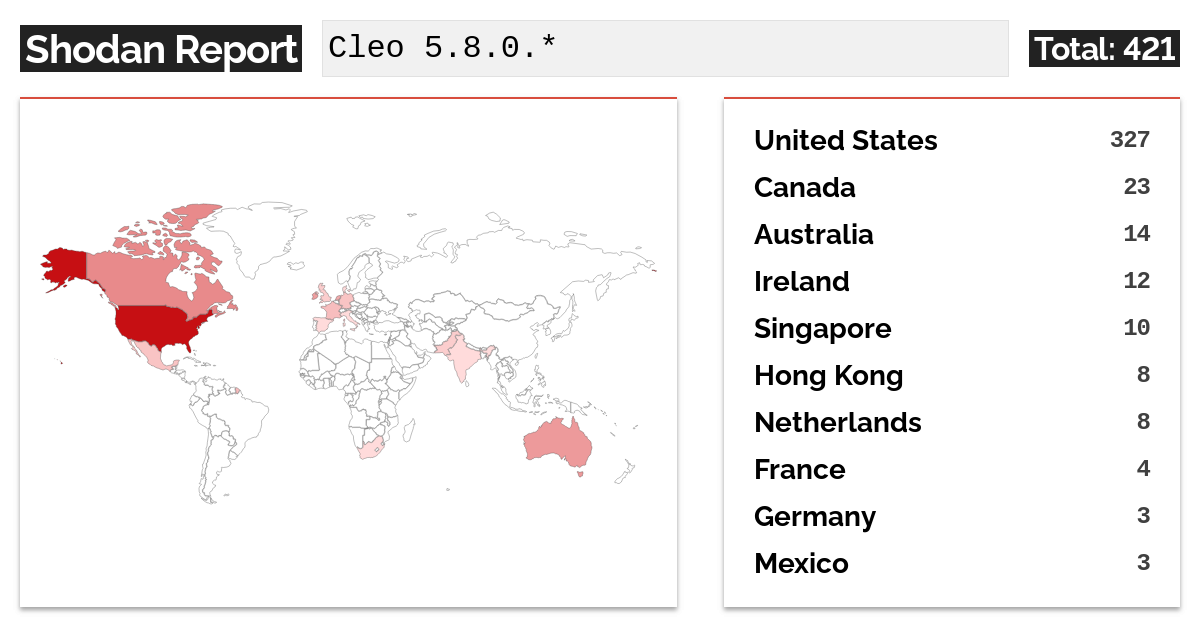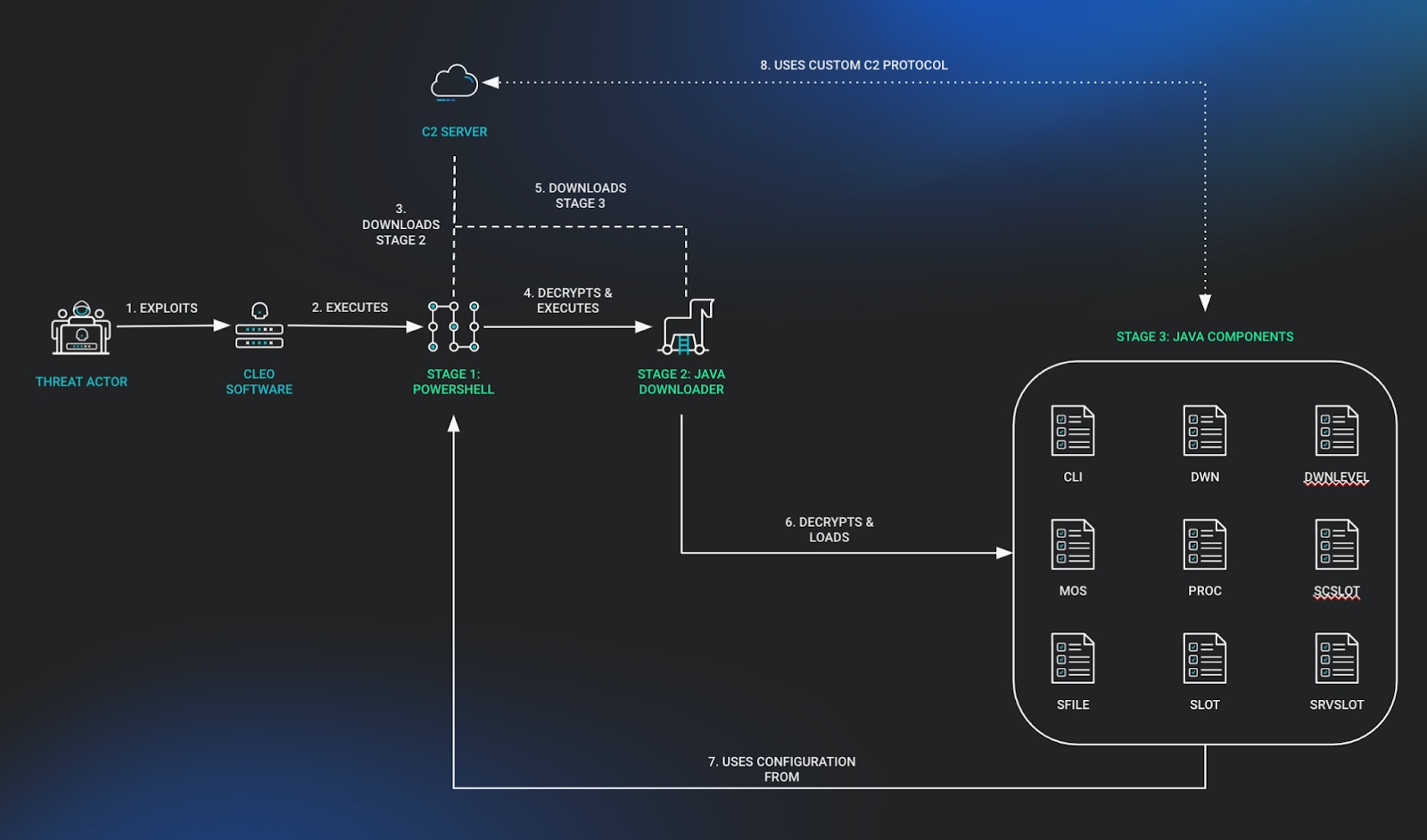Cleo has launched safety updates for a zero-day flaw in its LexiCom, VLTransfer and Concord software program, at present exploited in information theft assaults.
In October, the corporate patched a pre-authentication distant code execution vulnerability (CVE-2024-50623) in its managed file switch software program and really helpful that “all clients improve instantly.”
Huntress safety researchers first detected proof of assaults focusing on Cleo software program absolutely patched on December third. This was adopted by a notable improve in exercise on Sunday, December 8, after attackers rapidly found a CVE-2024-50623 bypass (no CVE-ID) that enables them to import and execute arbitrary bash. or PowerShell instructions making the most of the default autorun folder settings.
This zero-day bug is now being exploited in ongoing assaults linked by cybersecurity skilled Kevin Beaumont to the Termite ransomware gang, which not too long ago claimed accountability for the breach. Software program as a Service (SaaS) Supplier Blue Yonder.
“This vulnerability is being actively exploited within the wild and absolutely patched methods operating 5.8.0.21 are nonetheless exploitable,” Huntress warned on Monday.
“We strongly advocate that you just place any Cleo system uncovered to the Web behind a firewall till a brand new patch is launched.”
Shodan at present tracks 421 Cleo servers worldwide, 327 of that are in the USA. Macnica menace researcher Yutaka Sejiyama additionally discovered 743 Cleo servers accessible on-line (379 operating Concord software program, 124 VLTrader, and 240 LexiCom).

Patches out there to dam Malichus malware assaults
At this time, Cleo launched patches to dam ongoing assaults and urged clients to replace to model 5.8.0.24 as quickly as potential to guard Web-exposed servers which are weak to breach makes an attempt.
“Cleo strongly recommends all clients instantly replace Concord, VLTrader, and LexiCom situations to the most recent launched patch (model 5.8.0.24) to deal with potential extra assault vectors found from the vulnerability,” the corporate mentioned. “After the patch is utilized, errors are logged for any recordsdata discovered at startup associated to this exploit, and people recordsdata are deleted,” it says. mixture.
Cleo advises those that can not replace instantly to disable the autorun function by going into System Choices and clearing the autorun listing (this is not going to block incoming assaults however will cut back the assault floor).
Risk actors have now exploited the patch to deploy an encoded Java Archive (JAR) payload (VirusTotal) which is a part of a broader Java-based post-exploitation framework, as Rapid7 found whereas investigating the assaults.
Hunter too analyzed the malware (now known as Malichus) and mentioned that it was solely applied on Home windows units though it additionally comes with Linux assist. In accordance Binary Protection ARC LabsMalichus can be utilized by malware operators for file transfers, command execution, and community communication.

To date, Huntress has found no less than ten corporations whose Cleo servers had been hacked in these ongoing assaults and mentioned there are different potential victims. Sophos has additionally discovered indicators of compromise on greater than 50 Cleo hosts.
“All noticed affected clients have a department or function in North America, primarily the US. We notice that almost all of noticed affected clients are retail organizations.” Sophos mentioned.
These assaults are similar to Clop information theft assaults aiming for zero days in MOVEit Switch, Go Wherever MFTand Accession FTA in recent times.

